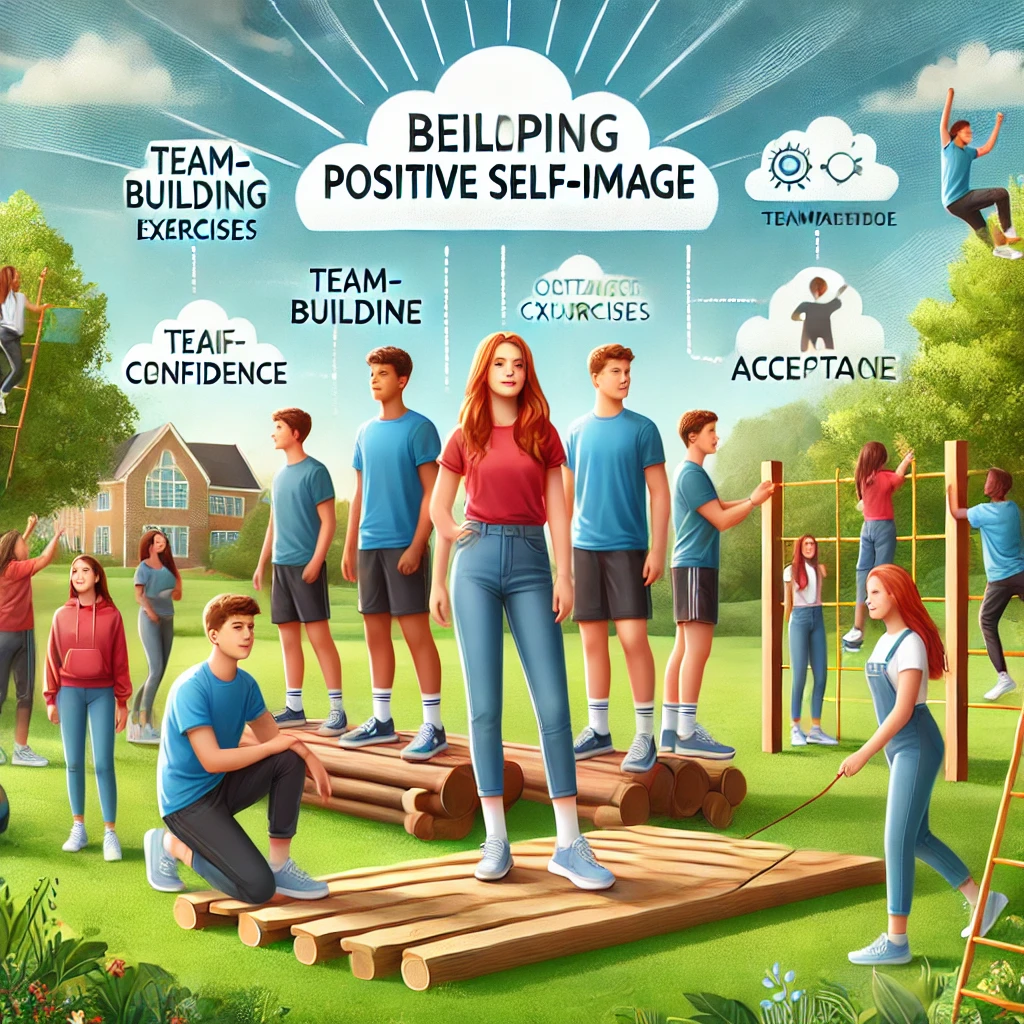Introduction
Building a positive self-image is a vital aspect of mental health and overall well-being. A positive self-image contributes to greater confidence, higher self-esteem, and better mental health outcomes. This article explores the statistical evidence supporting the importance of building a positive self-image and provides practical tips and strategies to help individuals achieve this goal.
The Importance of a Positive Self-Image
- Mental Health and Well-Being:
- According to the American Psychological Association (APA), individuals with a positive self-image are 50% less likely to experience symptoms of depression and anxiety compared to those with a negative self-image .
- The World Health Organization (WHO) reports that a positive self-image is associated with higher life satisfaction and overall happiness .
- Academic and Professional Success:
- A study by the National Institute of Mental Health (NIMH) found that students with a positive self-image have a 30% higher academic performance than their peers with a negative self-image .
- Research published in the Journal of Occupational Health Psychology indicates that employees with a positive self-image are 40% more productive and have better job satisfaction .
Strategies for Building a Positive Self-Image
- Practicing Self-Care:
- The National Alliance on Mental Illness (NAMI) emphasizes that self-care practices, such as regular exercise, healthy eating, and adequate sleep, can improve self-esteem and mental health. A survey by NAMI found that 75% of individuals who regularly practice self-care report a positive self-image .
- According to a study by the Mayo Clinic, engaging in self-care activities can reduce stress by 30% and improve overall well-being .
- Challenging Negative Thoughts:
- Cognitive-behavioral therapy (CBT) techniques, which involve challenging and reframing negative thoughts, have been shown to significantly improve self-esteem. The APA reports that 85% of individuals who undergo CBT experience a noticeable improvement in their self-image .
- A meta-analysis published in the Journal of Clinical Psychology found that CBT is effective in reducing symptoms of depression and anxiety, further contributing to a positive self-image .
- Setting Realistic Goals:
- Research by the University of Scranton shows that individuals who set realistic and achievable goals are 60% more likely to feel confident and satisfied with themselves .
- The Harvard Business Review reports that setting and achieving small, incremental goals can lead to a 26% increase in overall self-esteem .
- Surrounding Yourself with Positive Influences:
- A study by the University of California, Los Angeles (UCLA) found that individuals who surround themselves with supportive and positive people are 70% more likely to develop a positive self-image .
- According to the Pew Research Center, 65% of individuals report that having a strong social support network significantly improves their mental health and self-esteem .
- Practicing Gratitude:
- The Greater Good Science Center at the University of California, Berkeley, reports that practicing gratitude can improve self-esteem by 30%. Their research indicates that individuals who regularly express gratitude feel more positive about themselves and their lives.
A study published in the Journal of Positive Psychology found that gratitude practices, such as keeping a gratitude journal, can reduce symptoms of depression and anxiety by 20% .

Practical Tips for Building a Positive Self-Image
- Daily Affirmations:
- Research by the University of Pennsylvania suggests that daily affirmations can increase self-esteem by 25%. Individuals who practice affirmations report feeling more confident and positive about themselves .
- The National Institutes of Health (NIH) found that affirmations can reduce stress and improve mental resilience, further supporting a positive self-image .
- Mindfulness and Meditation:
- A study by the American Mindfulness Research Association (AMRA) found that mindfulness meditation can increase self-esteem by 15% and reduce symptoms of anxiety and depression .
- The Journal of Clinical Psychology reports that individuals who practice mindfulness regularly experience a 20% improvement in overall well-being and self-image .
- Engaging in Hobbies and Interests:
- According to the APA, individuals who engage in hobbies and interests that they are passionate about report a 30% increase in self-esteem and life satisfaction .
- A study by the University of Cambridge found that participating in creative activities can reduce stress by 20% and improve overall mental health .
- Volunteering and Helping Others:
- The Corporation for National and Community Service reports that volunteering can improve self-esteem by 28%. Individuals who volunteer regularly feel more positive about themselves and their contributions to society .
- Research by the Journal of Social Service Research indicates that helping others can reduce symptoms of depression and anxiety, further supporting a positive self-image .
- Seeking Professional Help:
- The APA emphasizes the importance of seeking professional help for mental health issues. Therapy and counseling can improve self-esteem by 50% and provide individuals with the tools they need to build a positive self-image .
- A study by the National Institute of Mental Health (NIMH) found that individuals who seek professional help for mental health issues report higher levels of life satisfaction and overall well-being .
Conclusion
Building a positive self-image is essential for mental health, academic and professional success, and overall life satisfaction. Statistical evidence highlights the significant impact of self-care, challenging negative thoughts, setting realistic goals, surrounding oneself with positive influences, and practicing gratitude on self-esteem and mental well-being. By implementing practical strategies such as daily affirmations, mindfulness and meditation, engaging in hobbies, volunteering, and seeking professional help, individuals can overcome the roadblocks to developing a healthy self-image and lead more fulfilling lives.
Promoting a positive self-image requires a collective effort from individuals, families, schools, and communities. By creating supportive environments and providing accessible mental health resources, we can help individuals build and maintain a positive self-image, fostering a healthier and more resilient society.
References
- American Psychological Association (APA). (2020). Self-Esteem and Mental Health.
- World Health Organization (WHO). (2019). Positive Mental Health and Well-Being.
- National Institute of Mental Health (NIMH). (2018). Academic Performance and Self-Esteem.
- Journal of Occupational Health Psychology. (2017). The Role of Self-Esteem in Job Satisfaction and Productivity.
- National Alliance on Mental Illness (NAMI). (2020). The Importance of Self-Care.
- Mayo Clinic. (2019). Self-Care Practices and Stress Reduction.
- Journal of Clinical Psychology. (2018). Cognitive-Behavioral Therapy and Self-Esteem.
- University of Scranton. (2017). Goal Setting and Self-Confidence.
- Harvard Business Review. (2019). Achieving Goals and Self-Esteem.
- University of California, Los Angeles (UCLA). (2018). Social Support and Self-Esteem.
- Pew Research Center. (2019). Social Support Networks and Mental Health.
- Greater Good Science Center at the University of California, Berkeley. (2020). The Impact of Gratitude on Self-Esteem.
- Journal of Positive Psychology. (2018). Gratitude Practices and Mental Health.
- University of Pennsylvania. (2019). The Power of Daily Affirmations.
- National Institutes of Health (NIH). (2020). Affirmations and Mental Resilience.
- American Mindfulness Research Association (AMRA). (2019). Mindfulness Meditation and Self-Esteem.
- University of Cambridge. (2018). Creative Activities and Mental Health.
- Corporation for National and Community Service. (2017). Volunteering and Self-Esteem.
- Journal of Social Service Research. (2018). The Mental Health Benefits of Helping Others.




